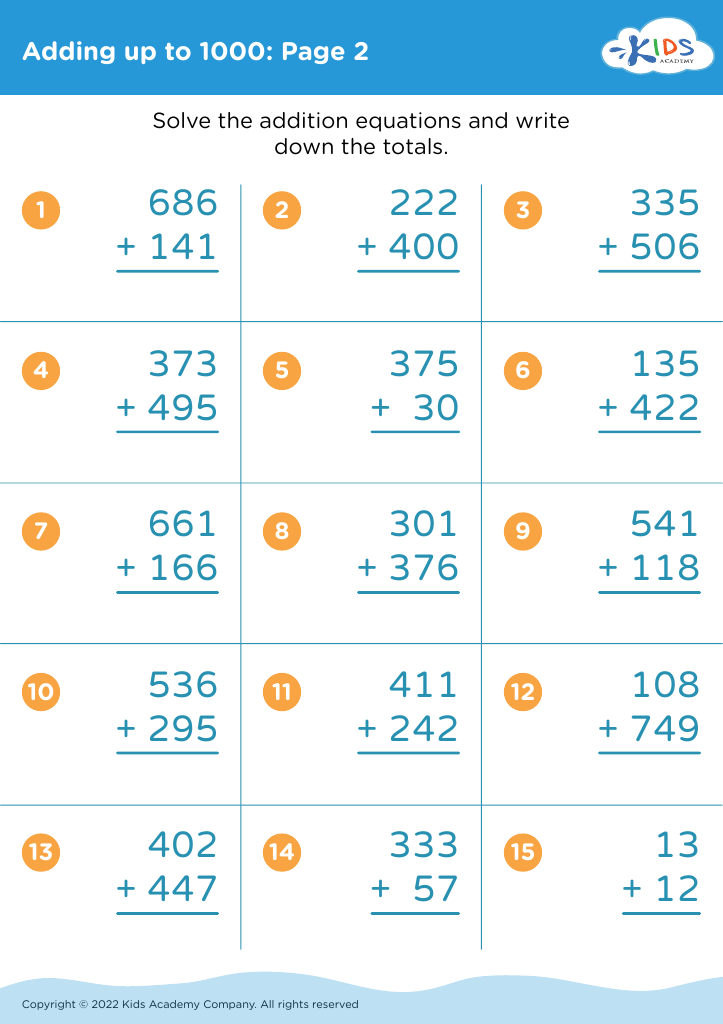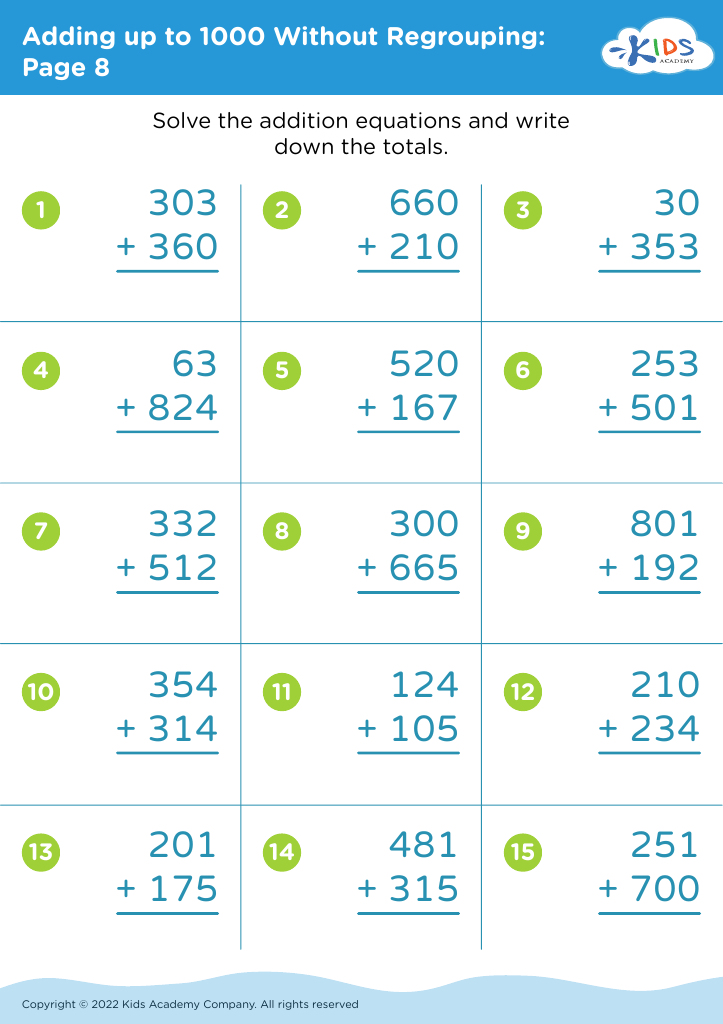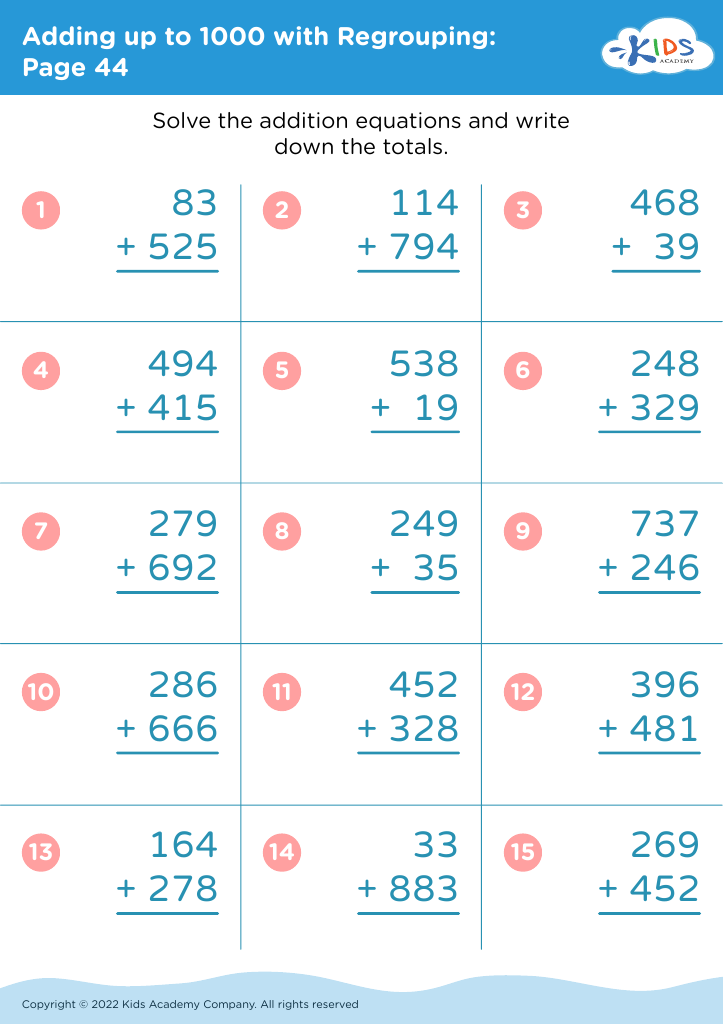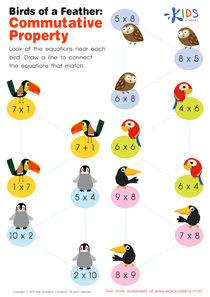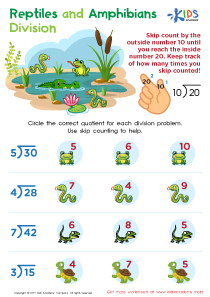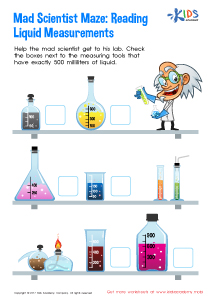Develop critical thinking Grade 3 Addition & Subtraction Worksheets
3 filtered results
-
From - To
Enhance your Grade 3 students' critical thinking skills with our engaging addition and subtraction worksheets! Specifically designed to challenge young learners, these worksheets promote analytical thinking through unique problem-solving scenarios and real-life situations. Our carefully crafted activities encourage kids to explore different strategies, analyze their reasoning, and communicate their thought processes. With fun visuals and interactive exercises, students will enjoy mastering essential math concepts while developing a deeper comprehension of addition and subtraction. Perfect for the classroom or at home, our resources empower educators and parents alike to foster critical thinking skills in a supportive learning environment. Unlock your child's mathematical potential today!
Developing critical thinking skills in Grade 3, especially in the context of addition and subtraction, is crucial for both parents and teachers. At this formative stage, students move beyond rote memorization and simple calculation; they start to understand the reasoning behind mathematical operations. Engaging students in problem-solving activities challenges them to think critically about how numbers work, encouraging them to analyze, synthesize, and apply their mathematical knowledge in real-world scenarios.
When parents and teachers emphasize critical thinking in math, they prepare students for higher-level cognitive skills that will be essential throughout their education and everyday life. For instance, understanding the concepts behind addition and subtraction helps students approach problem-solving in science, language arts, and even social studies, fostering a more adaptable and resilient learning mindset.
Moreover, developing critical thinking around addition and subtraction promotes a sense of independence and confidence in children. They learn to tackle challenges with creative strategies rather than relying solely on memorization or traditional methods. Ultimately, investing in these skills benefits society by nurturing thoughtful, resourceful individuals who can approach complex issues with a clear and critical brain, laying the groundwork for lifelong learning and effective decision-making.
